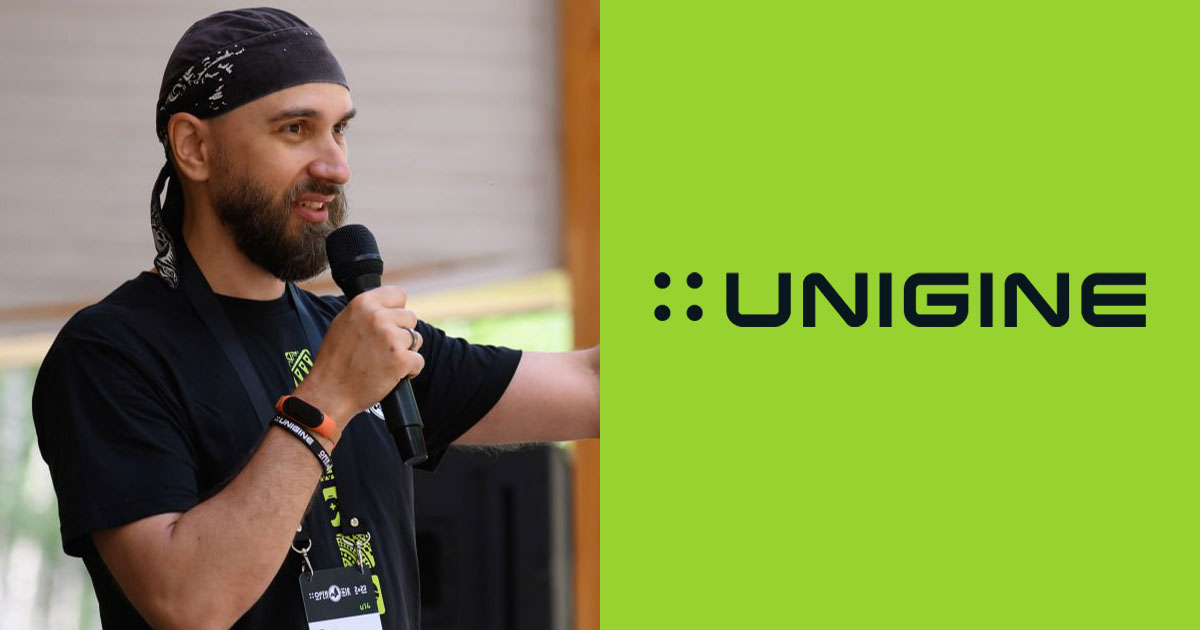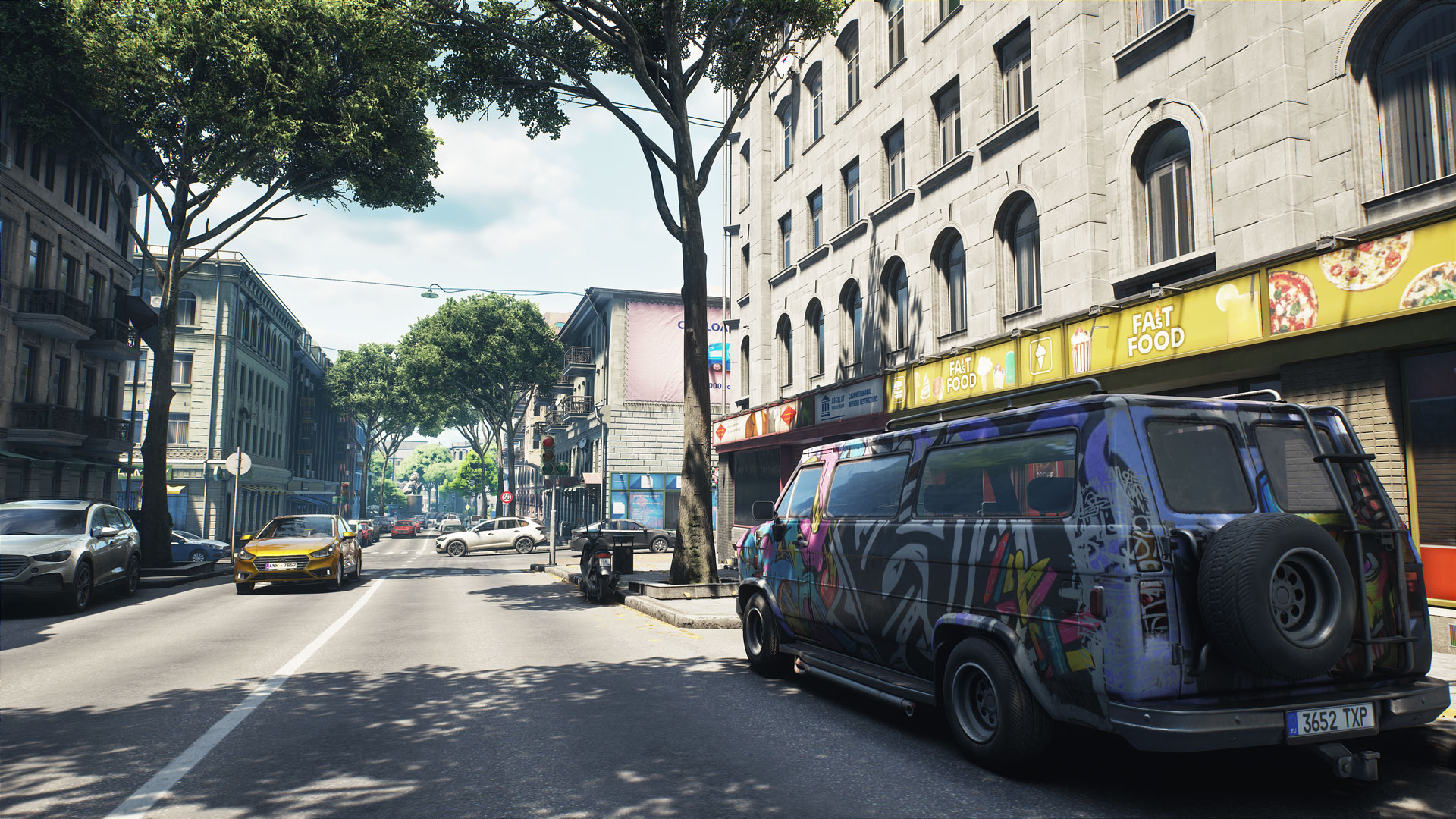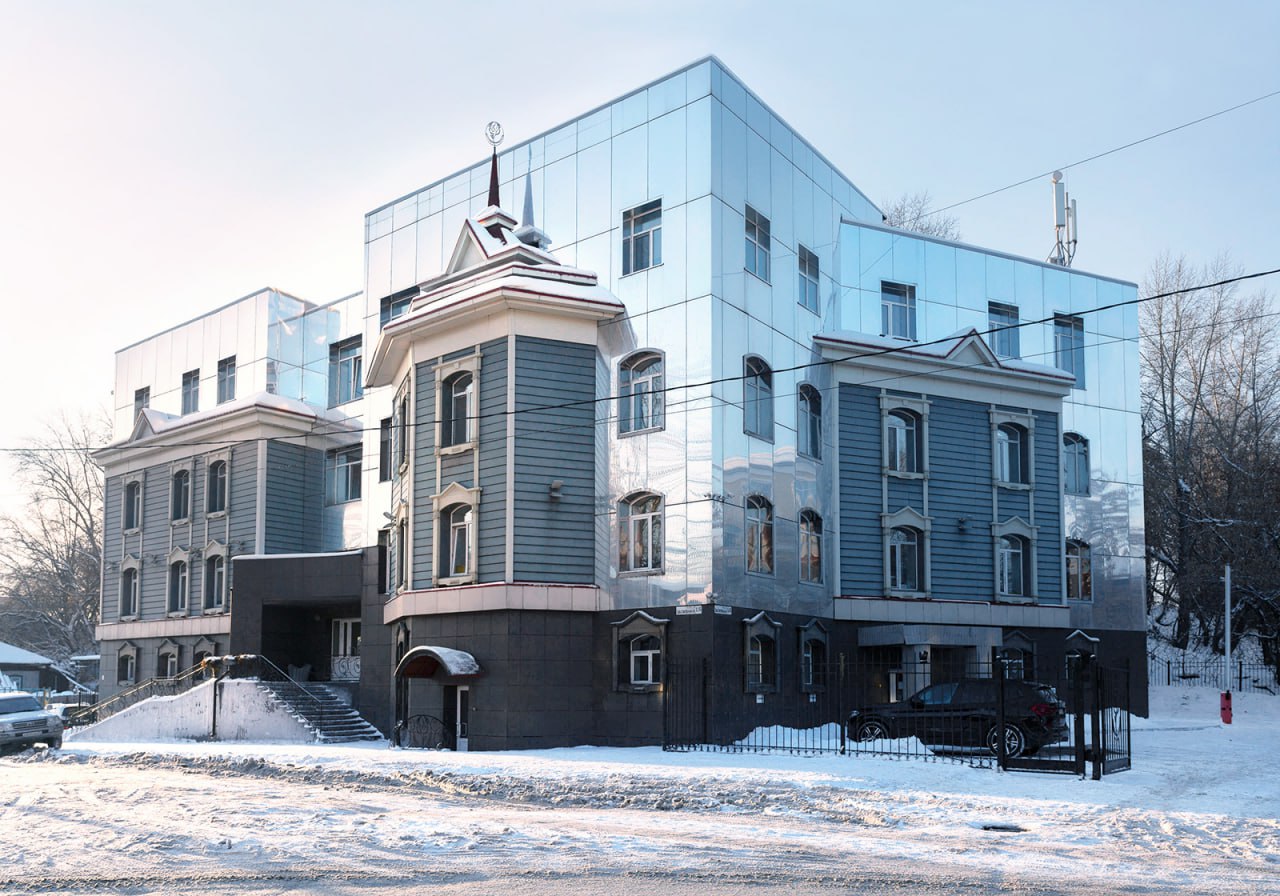We continue to summarize the results of 2023 with the gaming (or related to the gaming sector) teams. Next up is an interview with Denis Shergin, CEO of UNIGINE.
What was the year like for the company?
It turned out to be a productive year, however, like all the previous 18 years in the company's history.
We have been actively working on a completely new AA game together with an international publisher. I really want to tell you about this project. Almost everyone who sees it likes it, but let's wait for the official announcement from the publisher. From what I can say: in development since 2021, a genre historically close to us (simulator), there is a story campaign, will be released on a premium model on PC, PlayStation 5, Xbox Series X/S in 2024.
According to our UNIGINE 3D engine: two major releases and a dozen minor updates at the request of specific customers. The release rate this year is below the usual three to four releases per year. This is due to the large number of fundamental improvements that are initially rolled back on internal projects. In 2024, we plan to return to the previous release cycle.
From the cool to the SDK: we invented a new dynamic GI technology, seriously optimized performance, switched to DirectX 12/Vulkan as the main GAPI, implemented a huge number of QoL improvements in the editor.
Screenshot from UNIGINE 2.17
The team has grown to 100 people, which, with our careful selection of people, is quite decent. But we need even more — especially game designers and producers. In order to have enough space for everyone, we moved to a cool new office in the center at the end of the year.
Photos of the new office in Tomsk
We have greatly expanded the QA department, now we have almost three times more testing specialists. We cover significantly more scenarios for using our 3D engine on a variety of equipment (test farms have also been seriously updated).
The launch of the free UNIGINE SDK training course in Russian and English has become an excellent entry point for new users of the engine. A number of universities have already taken it as the basis of their internal training programs, and we are communicating with several more. Here we are open to cooperation — we are ready to communicate with everyone so that more qualified specialists in the field of interactive 3D projects appear.
We held a cool two-day Open Air in Tomsk, with excellent lectures about game dev and a chic friendly atmosphere. We invite everyone next year!
One of the interesting things for customers (which is not under the NDA) is a cool event with the U2 group! The world's largest screen (MSG Sphere in Las Vegas) had pixels from UNIGINE (digital works by Irish artist John Gerrard) during U2's first live concert in four years. Bono (the lead singer of U2) spoke very flatteringly about our technology, it's nice.
How has the game engine market changed, what trends and events would you note?
Everyone heard about the Unity scandal — for many teams, their change in licensing policy was the last straw, after which studios began to massively switch to other engines. Now the results of this outflow are not yet fully noticeable, because you can't just change the engine in the middle of the project, but many developers have decided to rely on another technology for the next project. Trust is extremely important in this business: after all, you choose a platform for developing a project for years to come.
Another important event was belt-tightening in Epic Games. The game development industry as a whole is in a fever — mass layoffs, project cancellations, studio closures. There are many reasons — the high base of covid times, the ended hype of crazy money from non-core investors, and the generally poor economic climate around the world. Against the background of all this, Epic Games' cash cow, Fortnite, is gradually reducing financial results. As a result, there are reductions in the ambitions of the company as a whole, including layoffs. At the same time, Tim Sweeney stated that this decline would not particularly affect the development of the Unreal Engine. Only time will tell.
In Russia, they began to talk more about import substitution, including import substitution of the 3D engine. However, nothing changes here for our clients: we have been working in Russia for the last 18 years, and we continue to do so. Write, call, come to our office in Tomsk — we are always glad to have new contacts.
What are the engine's plans for next year?
Some of the new features and improvements to the old ones have already been implemented. But before releasing them to customers, we roll them back on our game to additionally make sure that everything works exactly well. Priority areas are character animation, a new GUI system, even more optimizations for weak hardware, console support, optimizations for high resolutions (4K and higher). More templates for game projects of different genres.
In the direction of corporate application of our 3D engine, we see great growth in the field of autopilots - we have been working in this direction for several years. For example, one of our key customers is the German IPG Automotive, a developer of CarMaker vehicle design software (it is used by all the world's leading automakers and OEM component manufacturers). Trends in transport — smart driver assistants (ADAS) and autopilot. Reconfigurable virtual polygons (which, among other things, are made on the basis of our 3D engine) are very useful for training and testing artificial intelligence. A kind of 3D game for AI, in which it must learn how to drive properly, observing the rules and avoiding accidents. At the same time, a virtual polygon has a powerful advantage over 3D terrain data simply recorded by lidar. The 3D scene can be easily reconfigured at each launch, changing the scenario: change the markings, the surrounding city, let grandma out on the road, let a truck meet her, smear sensors with mud, switch time to dusk. Thanks to this, the AI can learn and "take the exam" on a huge number of variations of input data. And this is extremely important for the quality of neural network training, as many people now know.
It is for such tasks that we plan to continue to refine our UNIGINE Sim SDK in 2024. This is a product that, in addition to the engine, has many useful modules for developing professional simulators.
We also really want to launch monetization for third-party developers who publish their assets under UNIGINE in our store. So far, only free accommodation is available.
Perhaps, at some point, all this can be called UNIGINE 3. At the same time, we will try to maintain compatibility with UNIGINE 2 for an easy migration procedure for our clients' projects.
We hope that the release of our new game in 2024 will attract the attention of new developers to our engine. In general, our future is wonderful, if only it would come!



